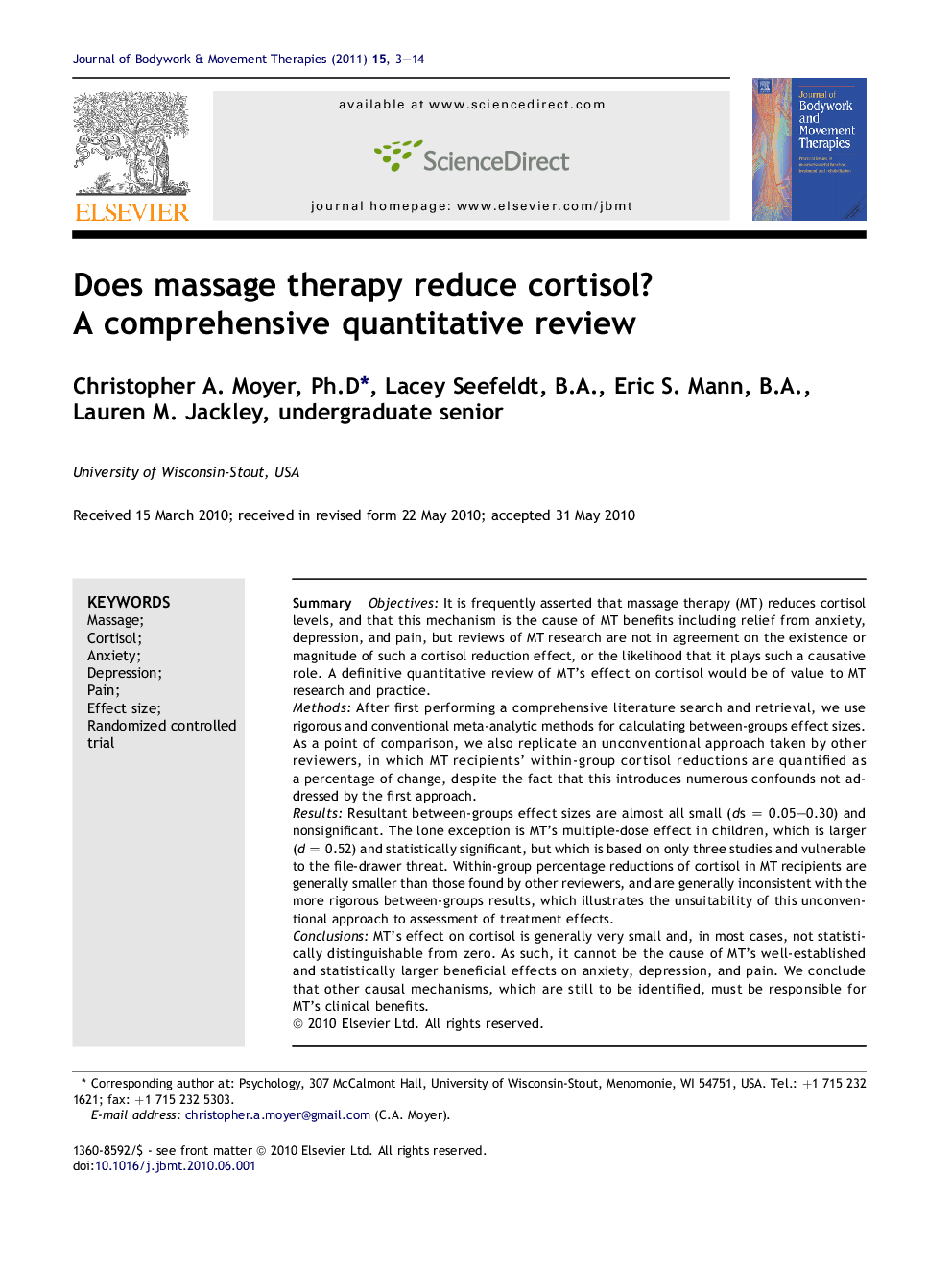| کد مقاله | کد نشریه | سال انتشار | مقاله انگلیسی | نسخه تمام متن |
|---|---|---|---|---|
| 2619450 | 1135496 | 2011 | 12 صفحه PDF | دانلود رایگان |

SummaryObjectivesIt is frequently asserted that massage therapy (MT) reduces cortisol levels, and that this mechanism is the cause of MT benefits including relief from anxiety, depression, and pain, but reviews of MT research are not in agreement on the existence or magnitude of such a cortisol reduction effect, or the likelihood that it plays such a causative role. A definitive quantitative review of MT’s effect on cortisol would be of value to MT research and practice.MethodsAfter first performing a comprehensive literature search and retrieval, we use rigorous and conventional meta-analytic methods for calculating between-groups effect sizes. As a point of comparison, we also replicate an unconventional approach taken by other reviewers, in which MT recipients’ within-group cortisol reductions are quantified as a percentage of change, despite the fact that this introduces numerous confounds not addressed by the first approach.ResultsResultant between-groups effect sizes are almost all small (ds = 0.05–0.30) and nonsignificant. The lone exception is MT’s multiple-dose effect in children, which is larger (d = 0.52) and statistically significant, but which is based on only three studies and vulnerable to the file-drawer threat. Within-group percentage reductions of cortisol in MT recipients are generally smaller than those found by other reviewers, and are generally inconsistent with the more rigorous between-groups results, which illustrates the unsuitability of this unconventional approach to assessment of treatment effects.ConclusionsMT’s effect on cortisol is generally very small and, in most cases, not statistically distinguishable from zero. As such, it cannot be the cause of MT’s well-established and statistically larger beneficial effects on anxiety, depression, and pain. We conclude that other causal mechanisms, which are still to be identified, must be responsible for MT’s clinical benefits.
Journal: Journal of Bodywork and Movement Therapies - Volume 15, Issue 1, January 2011, Pages 3–14